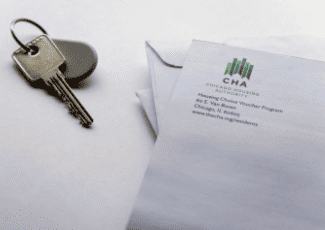Steps to selecting the right tenant
As a landlord, you must pay attention to several phases in the landlord-tenant relationship. Tenant selection and lease preparation are key, and this article focuses on that aspect.
 Screening and lease drafting help avoid trouble down the road. Once a tenants get in, it can be difficult to get them out. In New Jersey, for example, the tenant is entitled to virtual lifetime tenancy, unless the tenant violates the state’s Anti-Eviction Act and the landlord follows a technical procedure. It can also help with subsequent enforcement actions, should things go south.
Screening and lease drafting help avoid trouble down the road. Once a tenants get in, it can be difficult to get them out. In New Jersey, for example, the tenant is entitled to virtual lifetime tenancy, unless the tenant violates the state’s Anti-Eviction Act and the landlord follows a technical procedure. It can also help with subsequent enforcement actions, should things go south.
When meeting a prospective tenant, you should always take an application if you decide you are interested in leasing to the prospect. There are many forms available. The application you use should identify the prospect, his current residence and landlord. It should also question previous rental and landlord history.
There should also be questions about prior landlord tenant and criminal matters, as well as family and nonfamily references, including contact information and banking information. The application should authorize the landlord to vet the information.
All of this information should be checked. There are one-stop services that do credit, criminal and L/T court checks. Use them.
Call the references. Make sure that all information requested is provided. It is in the interest of both parties to see that this is done. If the tenant does not answer certain inquiries, it raises questions. You may charge a fee to do the checks and verify the information in the application.
Discrimination against certain classes of tenants is prohibited. In addition to race, religion and ethnicity, there may be other protected classes, depending on your state law.
Assuming the application checks out, the next step is drawing up the lease. While its terms are subject to negotiation, there should be clauses discussing rents, forms of payment (including electronic), term of lease, security, attorney’s fees, late payments, conditions on which the landlord will have access, damages for disruptions of service, and notice to the parties as well as other events that may occur.
You must be sure the lease complies with state law. The state may have certain notices mandated to appear in the lease. Some statutory protections may not be waivable. There are also implied liabilities. For example, in New Jersey, if there is a clause that requires the tenants to pay the landlord’s attorney’s fees, the law implies a reciprocal obligation on the part of the landlord.
You must consider whether it is worthwhile to have the clause. If you have a client who is on public assistance, for example, you may never be able to recover the attorney fee, and you may end up funding the tenant’s counsel.
At the time of execution of the lease, the landlord should collect the first month’s rent and security deposit. The checks tendered should be photocopied, in the event post-lease enforcement is necessary.
Follow these steps and you are on the road to a happy landlord/tenant relationship.
This article originally appeared on Multiview.com















 Accessibility
Accessibility